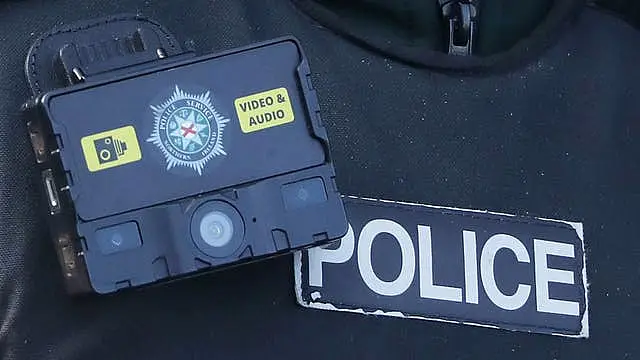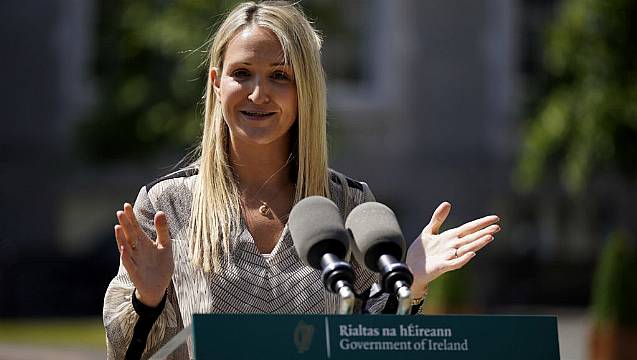Minister for Justice Helen McEntee has said there will be safeguards to make sure gardaí cannot use facial-recognition technology on a live basis.
The Government has been divided on the topic of facial recognition for law enforcement purposes and the legislation for the technology has been separated from the Bill which would provide for Garda body-worn cameras.
Speaking to RTÉ radio, she said: “There won’t be guards walking down Grafton Street live profiling anybody.”
Ms McEntee said facial-recognition technology would be used retrospectively for specific crimes such as murder, rape, child sexual abuse, abduction and “serious security matters” which are subject to a maximum sentence of life imprisonment.
“Where something has happened, you will have to get prior approval from a Chief Superintendent, somebody who’s not involved in the case.
“We will make sure, and this is the legislation that we’re bringing forward, that it is in line with international best practice.”
Asked if the technology would be used for surveillance, she said: “Absolutely not, that would be prohibited.”
An Garda Síochána can now start procuring bodyworn cameras for our frontline Gardaí.
These are crucial to protecting Gardaí and investigating crime.
And new legislation on Facial Recognition Technology will help Gardaí build stronger, safer communities. pic.twitter.com/gu2gKBl5qF— Helen McEntee TD (@HMcEntee) June 20, 2023
On a related matter, the minister has said that An Garda Siochana can start procuring body-worn cameras after securing Cabinet approval to progress the current Garda Siochana (Recording Devices) Bill 2022 in the Oireachtas as a priority in the coming weeks.
She said people will not be asked for their consent to be filmed by the gardaí.
Asked if this meant victims of violence could not refuse to be filmed, the minister said there was a need to look at the “overall picture”.
“The gardaí have to use, I suppose, their own common sense here as well and what they feel would be best for the situation.
She added: “And look, if a victim prefers that the camera’s not on, then of course the guard will have to take that into account.”
Ms McEntee said there would be codes of conduct and practices set out for the gardaí.
The minister said her department is trying to equip gardai with “the technology and the tools that they need”.
In relation to body-worn cameras specifically, she argued it could be seen from other jurisdictions that the technology would be extremely helpful in protecting gardaí and people around them, particularly in the crucial first few minutes after arriving at a scene.
“It’s in using that evidence that they can obviously bring about prosecutions or that they can exonerate people as well.
“So it’s not to say that these cameras would be rolling all the time, they won’t.”
However, she said there would be a backwards buffer of 10-15 seconds upon activation of the cameras to ensure an incident that had just happened was recorded.
“Now it may or may not be needed. It may or may not be accessed afterwards.
“But you could imagine if they were just running constantly all the time, the amount of information, the amount of gardai we have, the amount of storage that would be needed – it’s not practicable.”

She said gardaí will not need to seek permission from a more senior member to use the body-cameras.
Asked about how the data will be stored and who can access it, Ms McEntee said there would be a “back system” holding data from body cameras, CCTV, and number plate recognition and other footage.
“It can then, depending on the case at hand, be accessed by the relevant member from An Garda Siochana.”
It was put to the minister that gardaí have shared images of the public on social media in the past.
“Where it has happened, it shouldn’t have happened,” she said.
However, she added that “we have to trust” that the gardaí will apply the rules set out in legislation.







